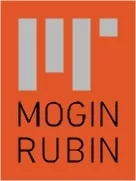The European Commission has made legally binding the commitments Apple offered to address antitrust concerns about its refusal to give Apple rivals access to the near-field communication (NFC) technology required for making contactless payments with iPhones.
The EC had three primary concerns:
- Market Power: Apple has significant control over the iOS ecosystem and a dominant position in the in-store mobile wallet market.
- Exclusive Access: Apple Pay is the only mobile wallet with access to NFC on iOS, excluding rivals and reducing innovation and choice.
- Antitrust Breach: Apple's behavior may violate Article 102 of the Treaty on the Functioning of the European Union, which prohibits abuse of a dominant market position.
The settlement will result in, among other things:
1. NFC Access for Rivals: Apple will allow third-party wallet providers free access to NFC technology on iOS devices, addressing competition concerns about exclusive access previously reserved for Apple Pay.
2. Fair and Transparent Procedures: Apple will implement fair, objective, transparent, and non-discriminatory criteria for granting NFC access to third-party developers, promoting a level playing field.
3. Enhanced User Experience: Users will be able to easily set third-party HCE payment apps as their default for in-store payments and use key functionalities like Field Detect, Double-click, and biometric authentication.
4. Ongoing Compliance and Monitoring: Apple will establish a monitoring mechanism and an independent dispute resolution system to ensure compliance with these commitments and to address any disputes regarding NFC access.
5. Adaptations Following Feedback: After market testing, Apple made additional commitments, including allowing payments at SoftPOS terminals, removing the PSP license requirement for developers, and ensuring continued updates to HCE architecture to meet evolving industry standards.
U.S. Action Continues
In March 2024, the Department of Justice and a group of state attorneys general brought an antitrust action under Section 2 of the Sherman Act against Apple, in part because "Apple as prevented third-party apps from offering tap-to-pay functionality, inhibiting the creation of cross-platform third-party digital wallets." Apple Wallet is the only app on the iPhone that can use NFC to facilitate tap-to-pay. The suit also says the innovative tech company blocks innovative super apps, suppresses mobile cloud streaming services, excludes cross-platform messaging apps, and diminishes the functionality of non-Apple Smartwatches.
The content of this article is intended to provide a general guide to the subject matter. Specialist advice should be sought about your specific circumstances.



